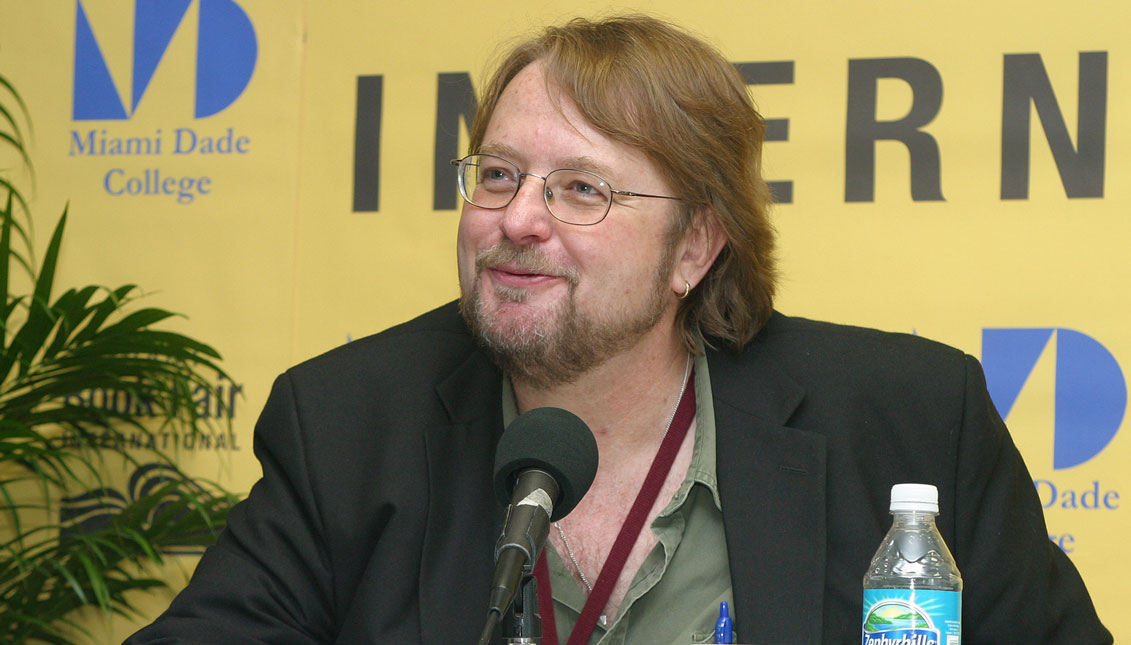
[OP-ED] Breathtaking book stirs America's cultural stew
Despite how much some people reject, resist or fear cultural assimilation, it turns out to be yawningly mundane.
Take, for example, this family-gathering scene from Luis Alberto Urrea's breathtaking new novel, "The House of Broken Angels":
"Little Angel was thwarted in his hopeless search for homemade Mexican food. In his mind, chicken mole and pots of simmering frijoles and chiles rellenos were to be displayed in pornographic lushness. But the reality of the day was folding tables groaning with pizzas, Chinese food, hot dogs, potato salad and a huge industrial party pan of spaghetti. Somebody was allegedly on the way with a hundred pieces of KFC. He noted Uncle Jimbo at his table with a paper plate heaped with noodles and buffalo wings."
The Little Angel in question asked his mom where the Mexican food was, and she told him that these days she was a "refugee from the apron."
This nugget of astute observation took me straight back to Christmas Eve a few months ago. My husband and I surveyed a feast that told the tale of an Asian-black-white-Mexican-Ecuadorean family modernized beyond recognition -- catering trays held lasagna, garlic shrimp, raspberry walnut salad, fried chicken and salmon steaks.
The only nod to the old days was my aunt's rice and my mom's egg-and-potato salad, each prepared because of the perception that it just wouldn't be a family get-together without them. These treasures were mostly left forgotten on a back burner by those in the crowd who were under 40 -- including my son, who moved away to Oregon and was thrilled to return for Christmas but, alas, couldn't enjoy his old favorites due to a new commitment to veganism.
This was a minor tragedy. But "The House of Broken Angels" taught me that I'm not the only one to feel such cultural dislocation even in my own home.
Recognizing your life in someone else's portrayal of lived experience is one of the great pleasures of reading literature. And Urrea's autobiographical, albeit fictionalized, recounting of a patriarch's last days among his sprawling family doesn't disappoint.
The story follows Big Angel, about to succumb to cancer, in his quest to survive the back-to-back endurance feat of his mother's funeral and his own living wake. Along the way, love stories are remembered in tender detail, jealousies are rekindled and familial tall tales are relived and made grander.
Those are the broad strokes, which in themselves are great. But the true beauty of this book is in the heart-stabbing details of the inner workings of a Mexican family: the compulsion for crappy instant coffee, the ear-tickling Spanglish that becomes foundational to a household's patter, the weird cousin who joined the school orchestra and preferred Debussy to Selena (just like me -- thank you for the privilege of seeing myself in your story, Urrea!)
Yes, there is a scene that encapsulates the very Hispanic experience of coming to the U.S. and, generations later, well after the American Dream is attained, getting trolled at the local Target store by a white lady who sweetly proclaims: "You'll be out of this country on your ass very soon."
In true Tolstoyan fashion, the final party scene features awkward sibling confrontations about ancient hurts, drunken dancing, tears, and worst-childhood-trauma competitions. In the background of it all, an old rivalry ends in an aunt's wig getting unceremoniously ripped off in front of a gaping crowd of family members.
Somehow, the story never collapses into mere telenovela-grade schmaltz. And the high point -- the language -- is a balm for any reader's soul.
In Urrea's poet hands a funeral is a "Disneyland of death," a Crown Victoria is "a square acre of 1979," pill bottles on a bedside table are "like the model of a futuristic city. Plastic skyscrapers loaded with colorful pills."
Lose yourself in this story as soon as humanly possible -- it is heart-wrenching and fun and poignant. But to enjoy it as an extra-special treat, listen to the audiobook.
Take it from someone who has been bingeing strictly on comedy podcasts since my own "Big Angel" just died days before Christmas: Reminders of the deaths of loved ones can be bittersweet, but there's nothing quite as soothing as having a sentimental story whispered in your ear by someone with a gift for spinning yarns.
Sure, some of it might make you sad, but the warm, comforting embrace of Urrea performing his own entrancing words will make you beyond happy to be among the living.











LEAVE A COMMENT:
Join the discussion! Leave a comment.